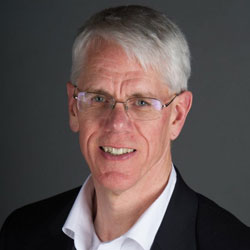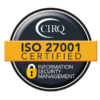In celebration of our tenth anniversary, Wes Michael recently answered ten questions about the company’s origins, growth, future, and the advice he would share with other entrepreneurs working to launch their projects.
10 Questions with Rare Patient Voice’s Wes Michael
Let’s go back to the beginning. How and when did you come up with the idea for starting Rare Patient Voice?
In the late 1990’s the company I was working for was asked to create a panel of hemophilia patients and caregivers so that a client could find out what they were thinking. We set up a booth at the National Hemophilia Foundation conference and recruited lots of people. One year, a different client asked if they could access the hemophilia panel. The answer was no, as it was paid for by another client. But that gave me the idea to some day create a panel that could take part in surveys from lots of different companies.
What were your initial hopes and goals for the company?
I thought there was a need, but I didn’t know if it would grow beyond hemophilia. I just wanted it to make patients happy and provide enough income to support my family.
How did you overcome the biggest obstacle you encountered in those first few years?
We found, and this sounds pretty obvious now, that patients know other patients. That we didn’t have to go to every event (though one year our team went to 351 patient events!), because if we treated people well, they would spread the word to other patients and family caregivers. This was the genesis of our referral program.
What changes have you seen in the healthcare market research field over the past ten years?
Research firms are always looking for new and better ways to get insights from patients. Instead of just doing a phone interview, it will be a Zoom call with a preliminary homework assignment, or a visit with a camera crew to the patient’s home to really get a feel for what their day-to-day life is like.
You launched Rare Patient Voice in the United States. When and how did you begin to expand to other countries?
From the beginning, clients would say, “We love your patients, we need the same service to be available in Europe.” We tried expanding to Canada early on, but that didn’t gain much traction. In 2020 we bit the bullet, did the appropriate translations, and started recruiting patients in the big five EU countries: UK, France, Germany, Italy and Spain. Since it was during COVID, we couldn’t recruit in person, and we worked through advocacy groups and used online approaches.
What has most surprised you over the course of the past decade?
I’ve been amazed at the great reception we received, and continue to receive from patients and clients. I used to worry that I would have to defend what we were doing, how and why, but people get it and want to be part of it.
Where would you like to see RPV ten years from now?
I see our patient community growing significantly where we are already represented, as well as in countries where we plan to expand. Our team will grow substantially to support our work not only in market research, but clinical trials, government contracting, usability/human factors, and disability research.
What advice would you give to potential entrepreneurs who dream of getting their project off the ground?
Plunge right in! There are always reasons why a new business won’t work. You can’t get bogged down in them. Just list all the things that need to be done and start doing them. And ask for advice along the way.
What are the most important things you’d like people to know about Rare Patient Voice?
Your health data is vitally important and needs to be protected. We bend over backwards to maintain that confidentiality. We know who you are so we can pay you , but we don’t know what answers you gave in the study. Our clients know what answers you gave, but they don’t know who you are. This makes a great way for you to give your opinions while maintaining your privacy.
How can patients and family caregivers begin taking part in research studies with RPV?
This is the easiest question! Simply sign up at www.rarepatientvoice.com/sign-up. You’ll be invited to the appropriate studies and paid at the rate of $120 per hour.








